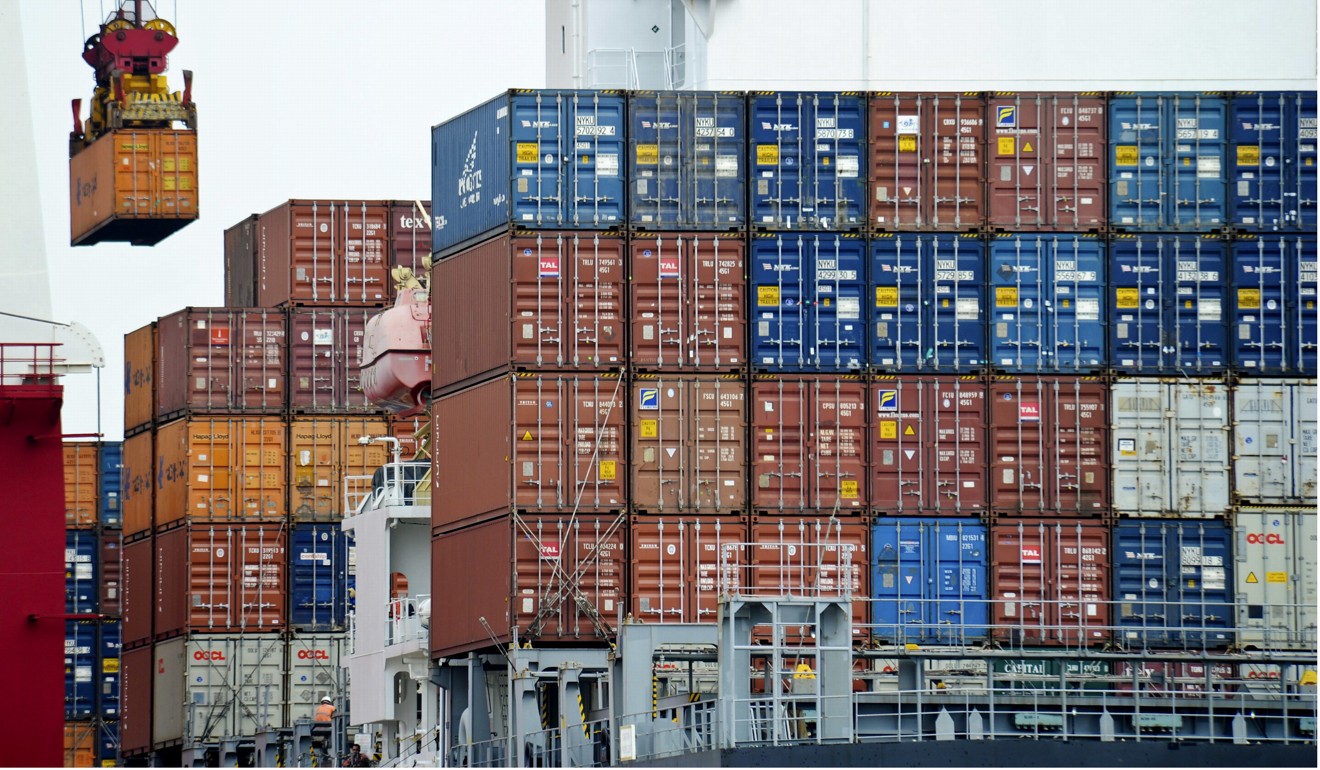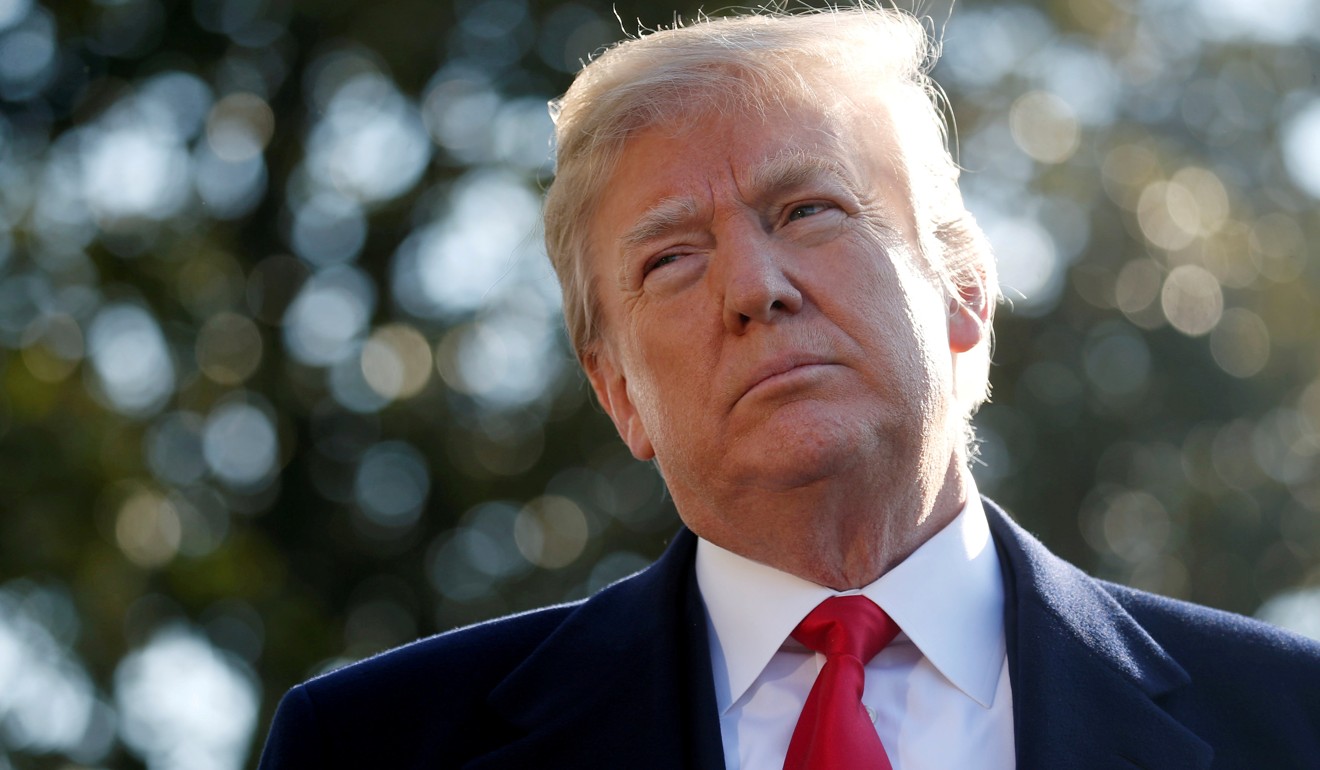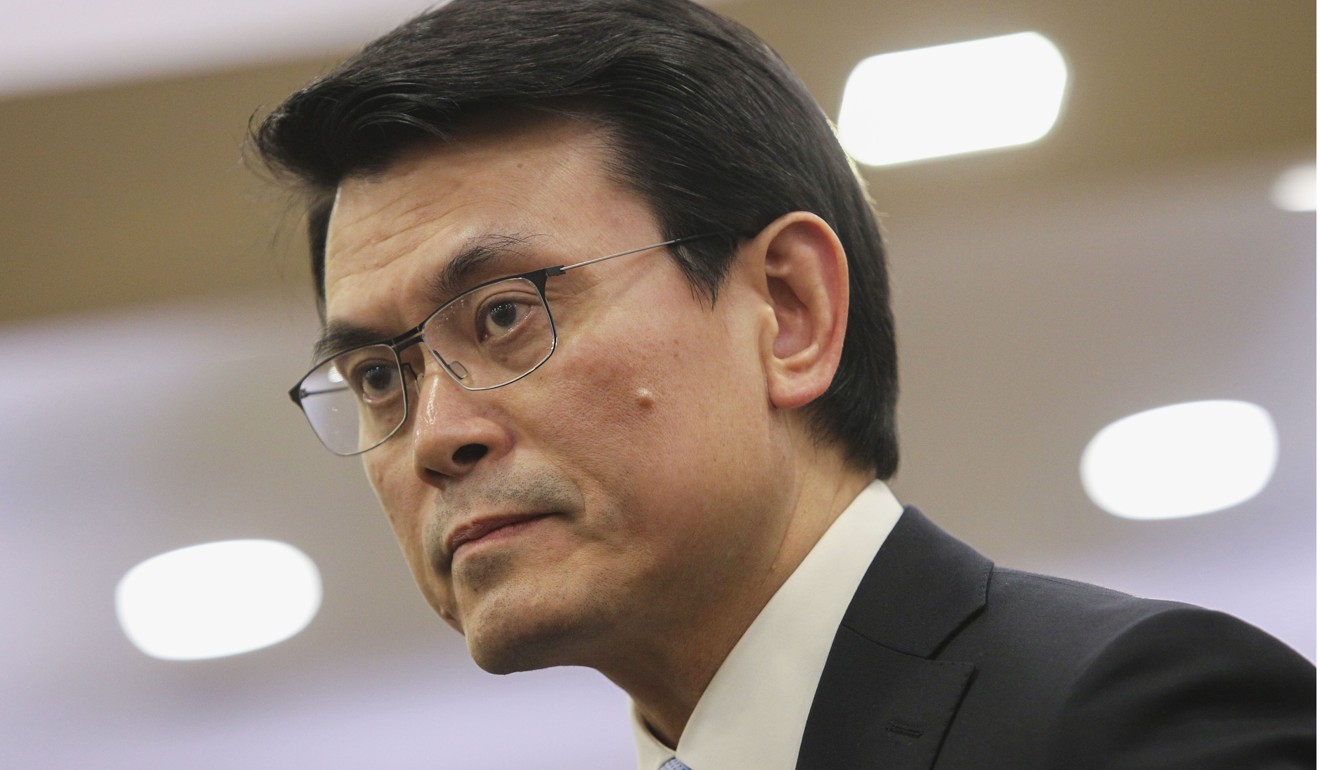
Exclusive | ‘Collateral damage to Hong Kong unavoidable’ from US-China trade war, city’s commerce chief says
Edward Yau tells the Post that while the government is concerned about tariffs, at this stage there is ‘no need to panic’
Hong Kong’s commerce minister on Friday said the city would inevitably be hit by a spillover effect from an escalating US-China trade war.
But Secretary for Commerce and Economic Development Edward Yau Tang-wah said in an exclusive interview with the Post that it would be difficult to assess the impact until the US rolled out a detailed list of products to be included.
He said the government would closely monitor trade tariffs imposed by the United States and China on each other’s goods.
“We need to be concerned because both the US and mainland China are our major trading partners ... and there will be a spillover effect on their trading partners,” Yau said.
“If a 25 per cent tariff is imposed on a large amount of goods ... and the trade war perpetuates, collateral damage to Hong Kong would be unavoidable since we are an entrepôt and there are a lot of direct investments between us.”

The city would “fight for its rights” in the event of discriminatory trade practices being implemented against it, Yau said.
“If anything is imposed on Hong Kong in a unilateral and discriminatory way, such as on aluminium material, Hong Kong would not hold back – we will voice our strong disapproval ... We have made this clear bilaterally and multilaterally,” he said.
A Sino-US trade war may be upon us – and China may have the upper hand
Asked about the impact on Hong Kong of a trade war, Yau said: “It is hard to assess now without a detailed list, as the US proposal only included a few general categories such as agricultural products and electronics ... It also depends on what countermeasures the Chinese government rolls out.”

Yau added that at this stage it was unlikely the China-US tensions would trigger an economic downturn in Hong Kong. While the city’s trade volume had a significant effect on its GDP, the economy was also dependant on other pillars such as services and professional and investment sectors, he said.
“We need to pay attention, but there is no need to panic.”
The US is preparing for a trade war with China – don’t be fooled by the noise
Yau met US Consul General Kurt Tong on March 15 to convey Hong Kong’s concerns and formally request the city be excluded from aluminium tariffs. Yau said Washington enjoyed a US$32.5 billion trade surplus with Hong Kong, the biggest of any country or territory.
“Hong Kong’s trade ties with the US have been very good ... and we have negotiated on a number of issues. We hope this relationship will not be undermined,” Yau said.

Countries should seek to resolve trade disputes in a “restrained” manner, he added.
“There is no winner in a trade war ... when sanctions trigger retaliation from the other side, both are losers,” Yau said.
“On trade disputes between two countries, we can only urge them to be restrained. The easiest way to resolve such problems is through bilateral negotiations, or the World Trade Organisation’s dispute settlement mechanism, because the WTO has [endorsed] agreements on intellectual property rights.
“It ruled in favour of the US in the past ... It’s a proven mechanism.”

